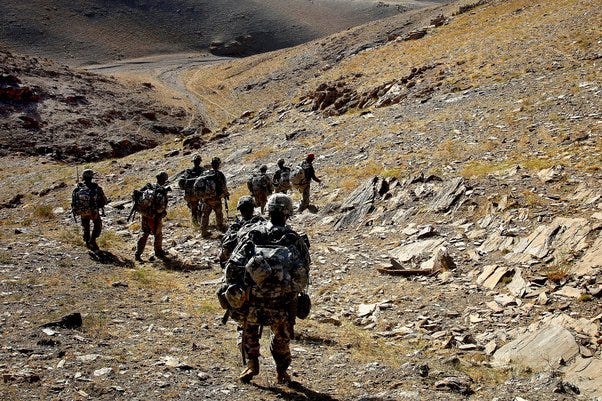Hello there,
Have you ever wondered why the Europeans controlled the world after the 15th Century? Or how a tiny island nation built a world empire and colonized our country for so long?
It’s hard to have sure-shot answers because history is complex and chaotic.
We can be sure that several causal factors dictate how events unfold on the global stage. Technology plays a big role. So do some brilliant leaders who completely shake things up. And sometimes it’s just dumb luck.
But one crucial factor that people don’t pay attention to is geography.
Many historians and geographers, from Jared Diamond to Ian Morris, have written about how geography is a key determinant of the fate of nations- Morris goes to the extent of vouching for ‘geographical determinism’. Or in simple words, the idea that geography is destiny.
Want to know more about this idea through some concrete, intriguing examples? Here are 6 of them:
Why did Eurasia get the lead in building large empires that’d take over the world? Diamond argues that it ultimately comes down to food production- and the horizontal axis of the Eurasian landmass gave it a big edge over Africa and the Americas. How? A horizontal axis implies that the climatic conditions are similar as you move East to West across the continent- making it much easier for crops to spread once discovered. Additionally, Eurasia also had the highest number of domesticated animals compared to others, and these 2 factors helped them get ahead in food production. This led to booming populations, which paved the way for armies, priests, innovators, and ultimately large, flourishing civilizations.
Unlike China or India, why did Europe never get a centralized kingdom with 1 emperor? It’s because of their unique geography. Interspersed with rivers, mountains, and seas meant that no king could easily expand from his territory to many others- these natural barriers were major constraints to attacking and seizing other lands. Thus, the EU was always full of competing kingdoms that maintained a balance of power and prevented centralization under an emperor.
Why has Afghanistan been so hard to conquer? The country has been called the ‘graveyard of empires’. The Brits, Russians, and Russians all tried to take over, and each of them ultimately had to walk out with a bloody nose and losses that’d make a startup founder look cute. Why? Because of the rugged mountainous terrain and harsh climate. Difficult terrain makes it hard to wage an offensive campaign, as the enemy can always retreat and hide in the passes. That’s exactly why every major power had to give up. For the same reason, the Marathas were able to wage a guerilla war in the mountains and slowly destroy the Mughals, which allowed them to take over most of India in the 1700s.
Why did the Spanish & Portuguese become the first imperialists? It’s because they’re peninsular countries. When you’re surrounded by water on most sides, you don’t have to worry about enemies invading you from all directions and can focus on the oceans to build a navy that can travel worldwide. That’s why the Spanish and the Portuguese were the first deep-water cultures that reached the Americas and India towards the end of the 15th Century and began their colonial rampages. But being an island is even better- which helped Britain ultimately achieve global naval supremacy. This brings us to the key question.
How did the tiny island nation of Britain dominate the world? The Spanish, Portuguese, and Dutch had made their bid for global mastery, but it was the Brits who built a sprawling global empire. What was it about their geography that caused this meteoric ascent? It was isolation. Being an island separate from the continent helped avoid the deadly cage matches that European powers engaged in: from the Thirty Years’ War to the Spanish War of Succession. Even if they got involved, none of these were ever fought on their soil, which gave them the distance needed to develop their economy and military. Being an island blessed with natural harbors and abundant timber allowed the country to build the greatest navy of the 1800s, which ultimately fuelled their conquest of the globe.
Ultimately, how did the US become a 21st-century superpower? Well, a lot of reasons boil down to geography. With a huge landmass, they have abundant natural resources, including shale. Being isolated, like Britain, means it’s exceedingly difficult to attack them, which allowed them to focus on development through the 19th and 20th centuries. The abundance of internal navigable rivers meant that trade got an insane boost and propelled the economy to new heights from the mid-19th Century. Their strategic location ensures that they can access markets in both Europe and Asia for a booming global trade.
It may sound like geography determines everything, but that’d be too simplistic- like saying every person who adds elaichi to their biryani is mentally retarded.
However, as the preceding cases (and countless others) demonstrate, it has an outsized impact on history.
We’ve all heard from irritating real estate brokers that “it’s all about the location”.
But I bet you never thought that location & geography are important enough to determine the rise & fall of empires and the ultimate fate of nations.
Thanks for tuning in! If you enjoyed this piece, consider sharing it with a curious friend.
As always, if you have questions to ask or violent abuses to offer, reply to this email. I respond to 102% of the emails I get.
And if you can’t get enough of these articles, here are some more you’ll enjoy:




